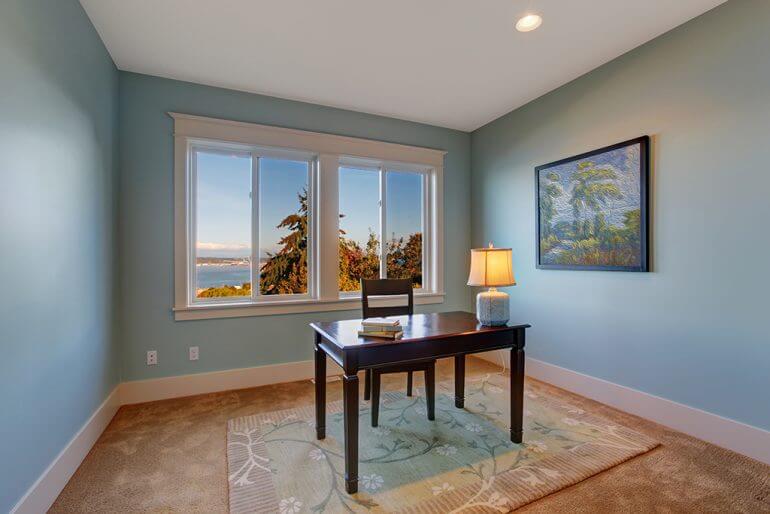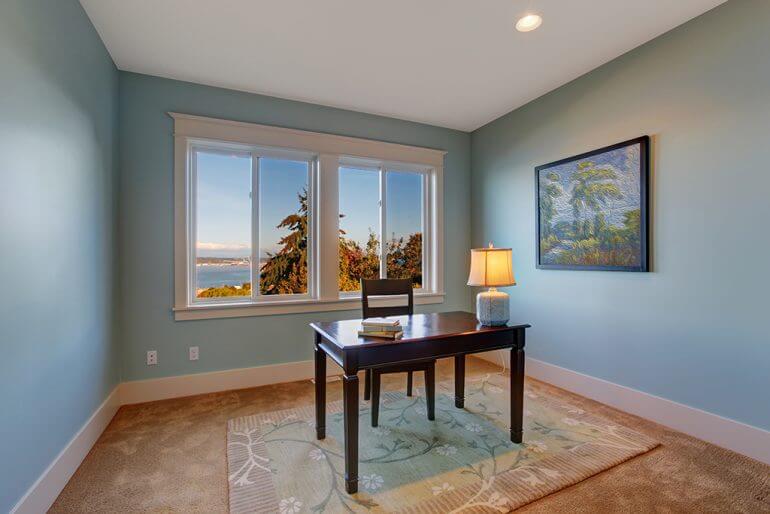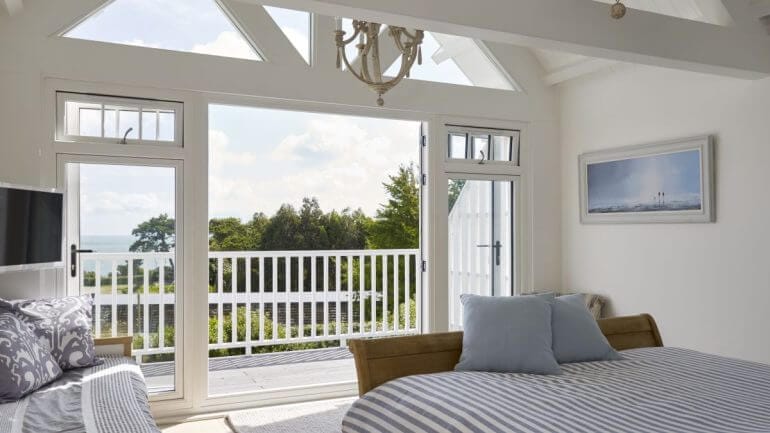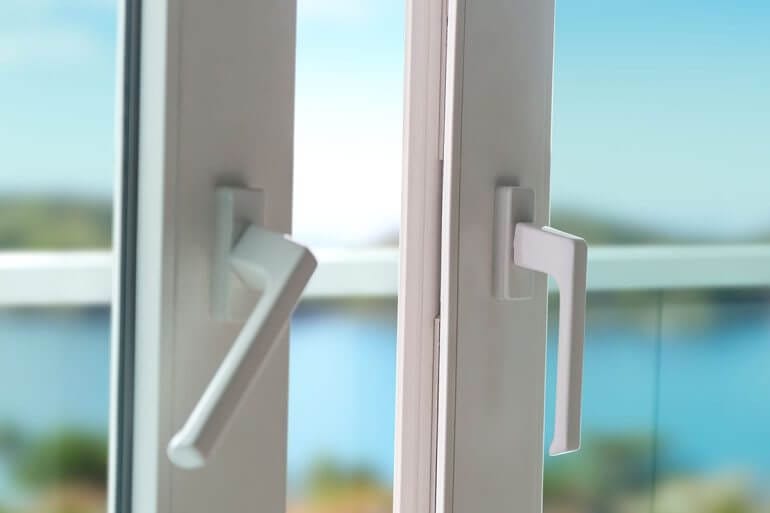Wood windows are renowned for their timeless beauty and natural warmth, instantly enhancing the charm of any home. When properly maintained, wood windows can last for decades, making them a durable and reliable choice for homeowners.
The lifespan of wood windows depends on various factors, such as the quality of the wood, the climate they are exposed to, and the level of maintenance they receive. Generally, with regular care and upkeep, wood windows can last anywhere from 20 to 30 years or even longer.

Regular cleaning, re-painting, and sealing can help protect the wood from moisture, rot, and insect damage, prolonging the lifespan of the windows. Additionally, avoiding excessive exposure to harsh weather elements and ensuring proper ventilation can also contribute to their longevity.
It’s important to note that the lifespan of wood windows can vary from one manufacturer to another, so it’s advisable to choose reputable brands known for their quality craftsmanship and durability. By investing in high-quality wood windows and providing them with proper care, you can enjoy their beauty and functionality for many years to come.

Maintenance Tips to Extend the Lifespan of Wood Windows
Wood windows add a touch of elegance and warmth to any home. However, to maintain their beauty and functionality, regular maintenance is essential. Proper care of your wood windows can significantly extend their lifespan and prevent costly repairs or replacements. In this section, we will discuss some valuable maintenance tips that will help you keep your wood windows in excellent condition for years to come.
1. Cleaning
Cleaning your wood windows should be a part of your regular maintenance routine. Start by removing dirt, dust, and debris from the window frames and sills using a soft brush or vacuum cleaner. Next, prepare a mixture of mild detergent and warm water. Dip a soft cloth or sponge into the solution and gently scrub the window frames and sills. Avoid using abrasive cleaners or solvents as they can damage the wood. After cleaning, rinse the windows with clean water and wipe them dry with a soft, lint-free cloth.
2. Inspection
Regularly inspect your wood windows for any signs of damage or wear. Look for cracks, peeling paint, or rotting wood. These issues should be addressed immediately to prevent further damage. Check the condition of the weatherstripping and seals around the windows. Damaged weatherstripping can lead to drafts and energy loss. Replace any worn-out weatherstripping or seals to maintain the efficiency of your windows.
3. Repainting and Sealing
Wood windows require periodic repainting or sealing to protect them from the elements. Over time, the paint on the windows may start to peel or fade. Scrape off any loose or chipped paint and sand the surface to create a smooth finish. Apply a primer to the bare wood and then paint the windows with a high-quality exterior paint. This will not only enhance the appearance of your windows but also provide them with a protective barrier against moisture and UV rays. Similarly, if your windows are sealed with caulk, inspect the caulk lines for cracks or gaps. Remove the old caulk and reapply a fresh bead of caulk to maintain a tight seal.
4. Lubrication
Proper lubrication is essential to ensure smooth operation of your wood windows. Regularly check the hinges, locks, and other moving parts for any signs of stiffness or friction. Apply a small amount of silicone lubricant or graphite powder to these areas to reduce friction and allow for easy opening and closing of the windows. Lubrication also helps prevent wear and tear on the hardware, extending its lifespan.
5. Protection from Moisture
Wood windows are susceptible to moisture damage, which can lead to rotting and warping. To protect your windows from moisture, ensure that they are properly sealed and caulked. Avoid excessive exposure to rainwater by installing gutters and downspouts to divert water away from the windows. Regularly check for any signs of moisture buildup or leaks around the windows and promptly address them to prevent further damage.
6. Professional Inspection and Maintenance
While regular maintenance is crucial, it is also essential to have your wood windows professionally inspected and serviced at least once a year. A trained window specialist can identify any hidden issues, perform necessary repairs, and provide expert advice on keeping your wood windows in optimal condition.
In summary, by following these maintenance tips, you can extend the lifespan of your wood windows and ensure their continued beauty and functionality. Regular cleaning, inspection, repainting or sealing, lubrication, protection from moisture, and professional maintenance are key to preserving the quality and longevity of your wood windows. By investing a little time and effort into maintenance, you can enjoy the timeless beauty and durability of wood windows for many years to come.

Signs that Indicate It’s Time to Replace Wood Windows
Wood windows are a beautiful and classic choice for any home. They add warmth, charm, and a timeless appeal. However, like any other component of your home, wood windows won’t last forever. Over time, they can become worn, damaged, and less energy-efficient. It’s important to recognize the signs that indicate it’s time to replace your wood windows.
1. Drafts and Energy Loss
One of the most obvious signs that it’s time to replace your wood windows is if you feel drafts or notice a significant increase in your energy bills. As windows age, the wood can warp, crack, or deteriorate, allowing cold air to enter your home and warm air to escape. This can lead to discomfort and higher energy costs.
2. Rot and Decay
Wood is susceptible to rot and decay over time, especially when exposed to moisture. If you notice signs of rot, such as soft or discolored areas around your windows, it’s a clear indication that your wood windows need to be replaced. Rot can spread quickly and compromise the structural integrity of the window, so it’s important to address it promptly.
3. Difficulty Opening and Closing
If you find it increasingly difficult to open or close your wood windows, it could be a sign of underlying issues. Warped frames, swollen sashes, or damaged hardware can make it challenging to operate your windows smoothly. Not only is this frustrating, but it can also pose a safety risk in the event of an emergency.
4. Condensation and Moisture Buildup
Excess moisture and condensation on the interior of your windows can indicate that the seals and insulation have deteriorated. This can lead to water damage, mold growth, and compromised indoor air quality. If you notice persistent condensation or moisture buildup, it’s time to consider replacing your wood windows.
5. Outdated Design and Functionality
While wood windows have a classic appeal, they may not be suitable for modern design preferences or functional needs. If your home’s style has evolved and your windows no longer complement the aesthetic, it may be time for an upgrade. Additionally, if you’re looking for features like enhanced security, noise reduction, or energy efficiency, replacing your wood windows with newer options can provide the desired benefits.
6. High Maintenance Requirements
Wood windows require regular maintenance, including sanding, staining, or painting, to keep them looking their best. If you find that the upkeep of your wood windows is becoming burdensome or time-consuming, it may be more convenient and cost-effective to replace them with low-maintenance alternatives, such as vinyl or fiberglass windows.
7. Decreased Curb Appeal
If the appearance of your wood windows is deteriorating due to peeling paint, discoloration, or visible signs of wear and tear, it can impact the overall curb appeal of your home. Upgrading to new windows can freshen up the exterior and enhance the visual appeal of your property.
In Summary
Recognizing the signs that it’s time to replace your wood windows is essential for maintaining the comfort, energy efficiency, and aesthetics of your home. Look out for drafts, rot, difficulty in operation, condensation, outdated design, high maintenance requirements, and decreased curb appeal. By addressing these issues and investing in new windows, you can enjoy improved functionality, energy savings, and a renewed sense of style.

Advantages of Choosing Wood Windows for Longevity
When it comes to choosing windows for your home, there are several options available in the market. One of the popular choices is wood windows, and for good reason. Wood windows offer a range of advantages that make them a durable and long-lasting option for homeowners. In this section, we will explore the benefits of choosing wood windows for longevity.
1. Natural Strength and Durability
Wood is known for its natural strength and durability. When properly maintained, wood windows can last for decades. Unlike other materials, such as vinyl or aluminum, wood has a higher resistance to impact and can withstand harsh weather conditions, including extreme temperatures, heavy rain, and strong winds.
2. Timeless Beauty
Wood windows have a timeless beauty that can enhance the aesthetic appeal of any home. The natural grain patterns and warm tones of wood create a warm and inviting atmosphere. Additionally, wood can be easily painted or stained to match any interior or exterior design, allowing for endless customization options.
3. Energy Efficiency
Wood windows have excellent insulation properties, which contribute to energy efficiency in your home. Wood is a natural insulator, helping to keep your home warm in winter and cool in summer. This can reduce your reliance on heating and cooling systems, resulting in lower energy bills and a reduced carbon footprint.
4. Longevity with Proper Maintenance
With proper maintenance, wood windows can last for many years. Regular cleaning and refinishing can protect the wood from moisture, UV rays, and other elements that can cause damage. It is recommended to inspect and repair any cracks, rot, or damage promptly to extend the longevity of your wood windows.
5. Environmental Sustainability
Wood is a renewable and sustainable resource, making it an environmentally friendly choice. Unlike synthetic materials, wood windows do not emit harmful gases during production and disposal. By choosing wood windows, you are contributing to the conservation of natural resources and reducing your carbon footprint.
6. Increased Home Value
Investing in wood windows can increase the value of your home. Potential homebuyers often appreciate the charm and durability of wood windows, which can make your property more attractive in the real estate market. Additionally, the timeless appeal of wood windows can withstand changing design trends, ensuring long-term value.
7. Noise Reduction
Wood windows have excellent sound insulation properties, helping to reduce external noise. This can create a peaceful and quiet environment inside your home, allowing you to relax and enjoy a serene atmosphere away from the hustle and bustle of the outside world.
In summary, choosing wood windows for longevity offers numerous advantages. From their natural strength and durability to their timeless beauty and energy efficiency, wood windows provide a sustainable and attractive option for homeowners. With proper maintenance, wood windows can last for decades, increasing the value of your home and creating a comfortable living space.
Expert Advice on Prolonging the Lifespan of Wood Windows
Wood windows add beauty and charm to any home, but they require proper maintenance to ensure their longevity. Without proper care, wood windows can deteriorate over time due to exposure to harsh weather conditions, pests, and other factors. To help you prolong the lifespan of your wood windows, we have gathered some expert advice that you can follow.
1. Regular Cleaning
Regular cleaning is essential to keep your wood windows in good condition. Use a mild soap or wood cleaner diluted in water to clean the window frames and sashes. Avoid using harsh chemicals or abrasive cleaners as they can damage the wood. Gently scrub the surfaces with a soft brush or sponge, and rinse thoroughly with clean water.
2. Inspect and Repair Damage
Regularly inspect your wood windows for any signs of damage such as cracked or peeling paint, rotting wood, or loose joints. Address these issues promptly to prevent further damage. Scrape off any loose paint, sand the surface, and apply a fresh coat of paint or sealant to protect the wood. If you notice any rotting wood, replace the affected area or consult a professional for repairs.
3. Protect from Moisture
Moisture is one of the biggest enemies of wood windows. Ensure that your windows are properly sealed and caulked to prevent water from seeping in. Regularly check the caulking and replace any damaged or cracked areas. Install drip caps or awnings above the windows to divert rainwater away from the wood. Avoid placing potted plants directly on the windowsill as water can cause damage over time.
4. Apply a Protective Finish
Applying a protective finish to your wood windows can help shield them from the elements and extend their lifespan. Consider using a high-quality wood stain or paint that provides both aesthetic appeal and protection against UV rays, moisture, and fungal growth. Ensure that the finish is applied evenly and follow the manufacturer’s instructions for proper application.
5. Regularly Maintain and Lubricate Hardware
The hardware of your wood windows, such as hinges, locks, and handles, also require regular maintenance. Inspect the hardware for any signs of rust or damage. Clean and lubricate the moving parts using a silicone-based lubricant to ensure smooth operation. Tighten any loose screws or bolts to keep the windows in proper alignment.
6. Keep the Windows Well-ventilated
Proper ventilation is important for the health of your wood windows. Ensure that the surrounding areas are well-ventilated to prevent excessive moisture buildup. Use exhaust fans in bathrooms and kitchens to reduce humidity levels. Avoid blocking the windows with heavy curtains or furniture that restrict airflow.
7. Schedule Professional Inspections
While regular maintenance can go a long way in prolonging the lifespan of your wood windows, it is advisable to schedule professional inspections every few years. A window expert can identify any hidden issues and provide necessary repairs or recommendations to ensure optimal performance and longevity.
Summary
By following these expert tips, you can prolong the lifespan of your wood windows and enjoy their beauty for years to come. Regular cleaning, inspections, protection from moisture, applying a protective finish, maintaining hardware, ensuring proper ventilation, and scheduling professional inspections are key steps to take in caring for your wood windows. With proper care and maintenance, your wood windows will continue to enhance the aesthetics and functionality of your home.
FAQs
How long do wood windows last?
Wood windows typically last for several decades if they are properly maintained and cared for. With regular painting or sealing and routine maintenance, wood windows can last up to 30 years or more. However, the lifespan may vary depending on factors like climate, exposure to moisture, and quality of installation.
Conclusion
In conclusion, wood windows can offer a timeless charm and durability for your home. With proper care and maintenance, wood windows have the potential to last for several decades. Their natural insulating properties and ability to withstand varying weather conditions make them a popular choice among homeowners.
By regularly sealing and painting the wood frames, as well as keeping them clean and free from moisture, you can extend the lifespan of your wood windows. Additionally, periodic inspection and repairs, such as replacing damaged parts, can further enhance their longevity.
Investing in high-quality wood windows and seeking professional installation will ensure that your windows perform optimally and stand the test of time. Therefore, if you are looking for windows that can last for years while adding aesthetic appeal to your home, wood windows are an excellent choice.